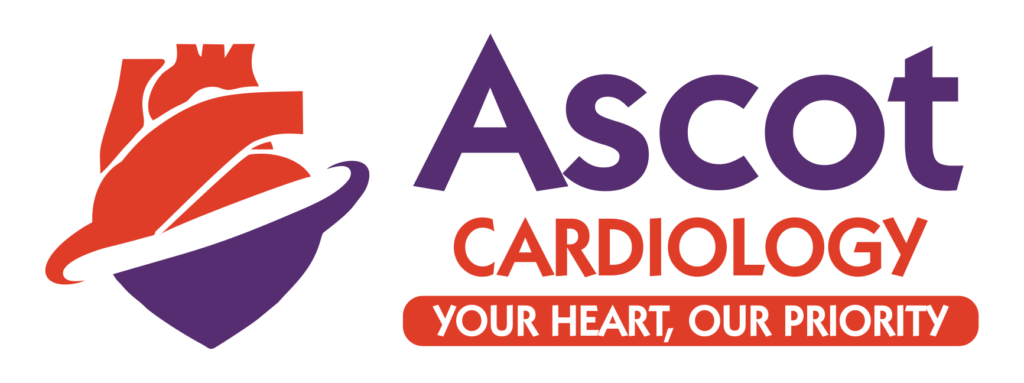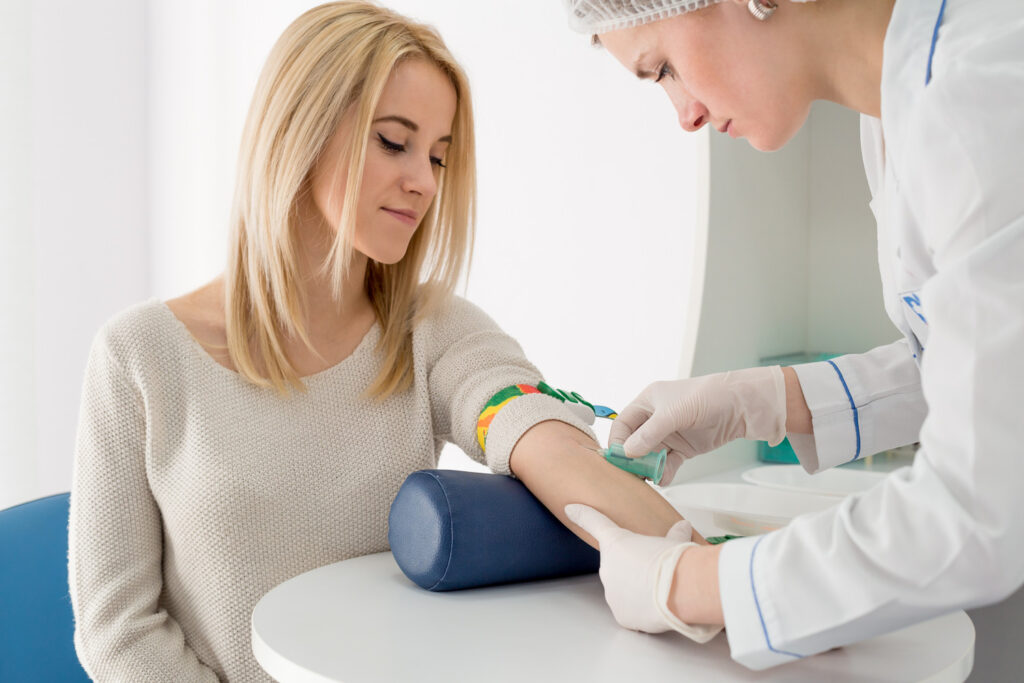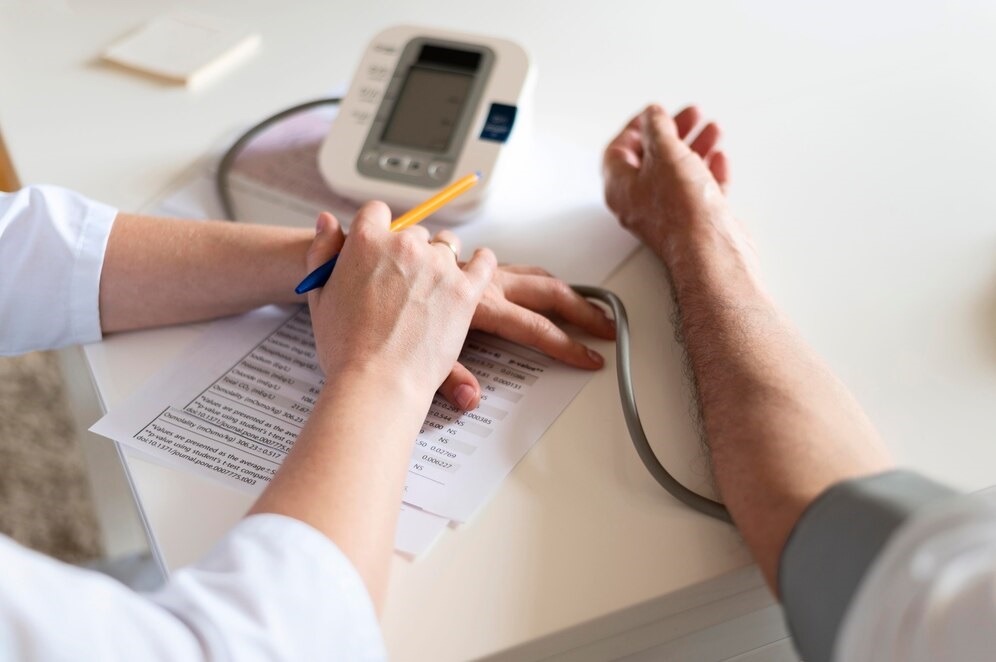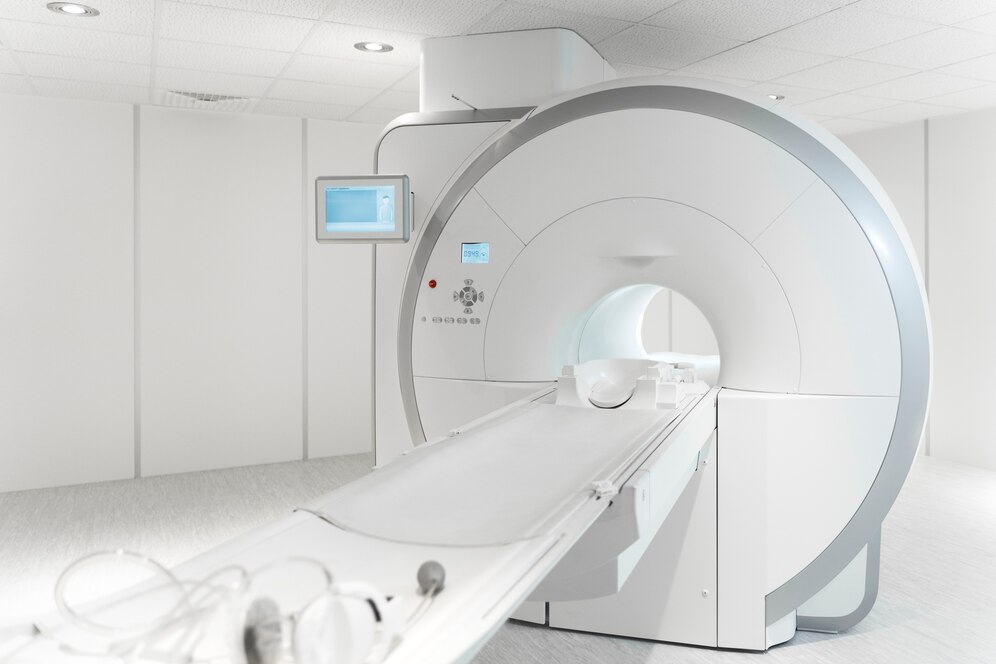

Cardiac Consultation
Our expert consultants will go through your medical history, lifestyle, risk factors including the family history and medications you are taking, followed by a clinical examination to look for any signs and symptoms of heart problems.

Blood Tests
We may need to perform some relevant blood tests following the clinic consultation to check your blood count, renal function, liver function tests, lipid profile and cholesterol, serum glucose levels, NT proBNP and serum troponin to look for any strain on the heart.

ECG
An electrocardiogram (ecg) is a test to detect electrical signals of your heart which helps diagnose some types of heart problems. This test proves very helpful to determine if you have irregular heartbeat, palpitations, fainting episodes, any previous or ongoing damage to the heart and as one of the initial tests to look at any blockages in the blood vessels of the heart.

Echocardiogram
An echocardiogram is a non-invasive and painless ultrasound scan of the heart which takes moving pictures of your heart and nearby structures. It provides helpful information about the heart’s overall shape, size, and function and detects any abnormalities of the pumping function of the heart. It is also very helpful in detecting any valve problems, genetic abnormalities involving the heart and is useful for family screening.

Holter Monitoring
A holter monitor is a portable ECG device which continuously monitors your heart’s electrical signals. It is a small cassette-shaped recorder that sticks to patient’s chest and its software records the heart beat of the patient over a period of 24, 48, 72 hours. The Holter monitor is provided from one of our facilities and thereafter the patient can go home and undertake their usual daily activities. Once the recommended recordings have completed, the recordings of the returned monitor will be analysed. This helps in detecting the various causes of palpitations and to assess the various causes of blackouts and dizzy spells.

Blood Pressure Monitoring
Blood pressure monitoring is crucial to a healthy heart. There are some patients who get significant fluctuations in their blood pressure over the 24-hour period. An ambulatory blood pressure monitor is a portable device which measures and record your blood pressure values over a 24-hour period, by using the arm cuff and the automated software. This is very useful in diagnosing and monitoring your blood pressure.

Cardiac CT Scan
Cardiac CT scan is an instant, comfortable and non-invasive scan to allow early detection of calcium deposits in your heart arteries and helps in assessing the severity of coronary artery disease. We use state of the art CT cardiac scanning technology and software to digitally produce an exact virtual version of your heart in a matter of seconds. During the scan you must lie down on a couch that moves through a large donut-shaped scan machine. Sometimes you may need an injection of contrast/dye in your arms to assess your heart in a detail. Cardiac CT scan uses x-ray images to quickly identify any potential heart problems including any major blockages in the blood vessels of the heart, any myocardial damage, abnormalities of the lungs, any problem with the blood vessels of the body like aneurysms of the aorta, look for any blood clots and to look at some heart valve defects.

Cardiac MRI Scan
A cardiac MRI scan looks very similar to a CT scan machine but instead of using x-ray radiations, uses a strong magnetic field and radio waves to detect any abnormalities with the heart and surrounding structures. It helps in diagnosing any issues with the heart structure and function. This state-of-the-art technology can help detect coronary artery disease, any problems with the muscles of the heart like cardiomyopathies, any valve abnormalities or any other structural heart diseases.